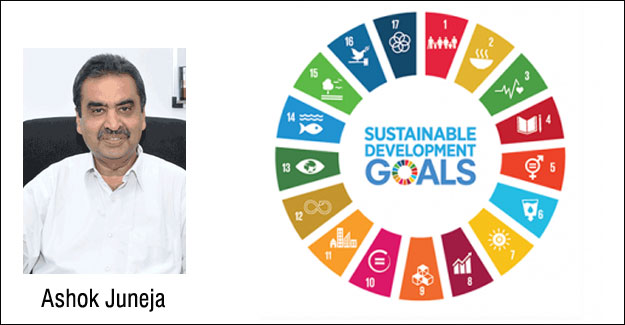
Sustainable Development Needs To Be Part Of School Curriculum
Sustainable development is development that meets the needs of the present without compromising the ability of future generations to meet their own needs. It contains within it two key concepts, the concept of ‘needs’, in particular the essential needs of the world’s poor, to which overriding priority should be given; and the idea of limitations imposed by the state of technology and social organisation on the environment’s ability to meet present and future needs. In today’s changing environmental climate, society needs eco-innovation and a sustainable focus more than ever before. Social movements and innovative initiatives are one way to push environmentalism to the forefront of our world, but we have an even better tool at our fingertips — teaching students how to live sustainably. The scope of sustainability is frequently described as including three spheres – social, environmental, and economic. Sustainability is at once an integrative discipline and a multidisciplinary project; it has statistical, scientific, and humanistic dimensions. Sustainability education encompasses most school subjects and extends far beyond classroom teaching. It gives students real-world skills that they can use to save the planet. It provides children with the self-sufficiency they need for tomorrow and offers them with an understanding of why the environment is important. Sustainability education teaches students about the interdependence between humans and the environment, the balance between environment and society, sustainable life skills, respect for the planet, future preparation and adaptation. The concept of sustainability is to make curriculum connections across a wide variety of disciplines at the school education level. Every student can understand sustainability from many perspectives and content areas. These cross-curricular connections provide for a richer, deeper learning experience for all students. With its focus on specific problems and particular solutions, sustainability suggests place-based and project-based approaches to student learning. Teaching towards sustainability also reminds us that there are important ties between classroom and community. Since most government policies, today are centered around achieving Sustainable Development Goals (SDGs) of the United Nations, this has led to increasing demand of personnel trained in SDG, resulting in institutes and universities offering programmes related to sustainability at undergraduate and Master’s level. In order to raise the next generation into eco-conscious, self-sufficient world citizens who understand the immediacy of environmental responsibility, the concept of sustainability must be added to the curriculum starting from school level to create a mindset for respecting and protecting the environment, nature and the planet, amongst students at early stages of their education.
Textile Excellence
If you wish to Subscribe to Textile Excellence Print Edition, kindly fill in the below form and we shall get back to you with details.












